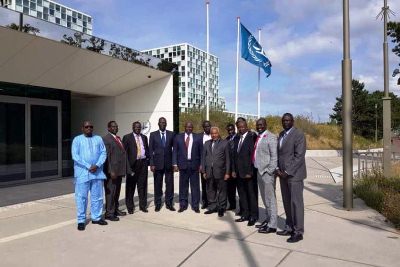S. Sudan opposition warns over hurried formation of new gov’t
October 19, 2019 (NAIROBI) – Wrongful and hasty formation of a transitional government under President’s Salva Kiir leadership minus addressing root causes of the conflict is another recipe for return to full-blown violence in South Sudan, an opposition movement said.

In a statement issued Saturday, South Sudan Opposition Movement (SSOM) warned of the likely occurrence of the July 2016 incident in which more than 700 people were killed in the capital, Juba.
“We believe from the very beginning of the Inter-Governmental Authority for Development’s (IGAD) High Level Revitalization Forum (HLRF), that the process for negotiating the R-ARCSS [Agreement on Resolution of the Conflict in South Sudan] was flawed,” partly reads the statement.
It added, “It has inevitably, therefore, led to a flawed and non-inclusive peace agreement, which failed to address the fundamental root causes of the crisis of governance, justice and accountability and leadership in South Sudan”.
A delegation from the UNSC is expected to visit Juba on Sunday.
Meanwhile, the opposition movement welcomed the visit on Sunday of the United Nations Security Council (UNSC) delegation, saying the move will help in the search for permanent peace in South Sudan.
The group appealed to the UNSC, African Union, and the IGAD countries, to provide a new platform for renegotiating the revitalized peace agreement in order to address the outstanding issues.
“A new platform to make the R-ARCSS fully inclusive. It is only in this way that a durable, genuine, and just peace can be realized in South Sudan. This will not come about via the formation of an incomplete and non-inclusive transitional government that is being forced upon the long-suffering and downtrodden people of South Sudan, yet again,” further stressed the opposition alliance.
Last week, the 15-member Security Council urged the parties to the revitalized peace agreement in South Sudan to continue meeting regularly to resolve outstanding substantive issues needed for formation of a transitional national unity government.
South Sudan descended into war in December 2013 when Kiir accused Machar of plotting a coup, allegations the latter dismissed.
In September 2018, the rival factions involved in the conflict signed a peace deal to end the conflict that has killed tens of thousands of people and displaced over 2 million people in the country.
(ST)
